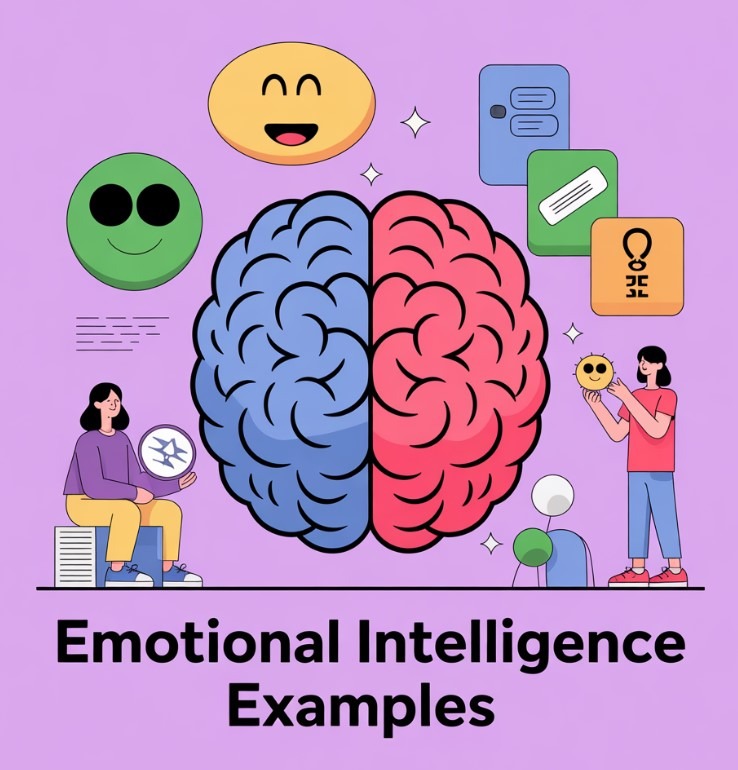Emotional Intelligence and Examples

Contents
Written by: Dr. Anya Sharma, Licensed Clinical Psychologist
Medically Reviewed by: Dr. David Chen, PhD, Research Psychologist
Date Published: October 26, 2023
Key Takeaways
- Emotional Intelligence (EI) is the ability to manage your own and others’ emotions.
- The concept was defined by researchers Salovey and Mayer.
- High EI is linked to success in relationships and careers.
- EI is a learned skill developed through dedicated practice.
Introduction: Understanding the Power of Emotional Intelligence
Emotional intelligence is a powerful predictor of success. This ability is the foundation of strong relationships. It is the core of resilient leadership.
This guide explores the components of emotional intelligence. This guide provides science-backed examples of high and low EI. This guide offers practical tips for cultivating this essential skill.
What Is Emotional Intelligence (EQ)? A Foundational Definition
Researchers first defined emotional intelligence in 1990. Daniel Goleman later popularized the concept in his 1995 book. High EQ means you use emotional awareness to make better decisions. High EQ helps you build stronger professional connections.
High vs. Low Emotional Intelligence: A Comparative Look
Daniel Goleman’s model breaks EI into five key components. Understanding this model clarifies the differences between high and low EQ.
Signs of High Emotional Intelligence
You recognize your own emotions.
You manage your emotional impulses.
You pursue intrinsic goals for self-improvement.
You perceive the emotions of others accurately.
You manage relationships and conflicts constructively.
Signs of Low Emotional Intelligence
Feeling overwhelmed by emotions indicates low self-awareness.
Reacting impulsively demonstrates poor self-regulation.
Struggling to see other perspectives shows low empathy.
Avoiding necessary conflict reveals difficult social skills.
Emotional Intelligence in the Workplace: The Ultimate Career Skill
Technical skills get you hired for a job. Emotional intelligence helps you succeed in that job. A leader’s empathy directly impacts team morale.
Examples of High EI at Work
- Accepting constructive feedback shows professional maturity.
- Collaborating effectively builds strong, cohesive teams.
- Navigating office politics requires high social awareness.
- Managing personal stress prevents professional burnout.
Examples of High EI in Leadership
- Leading with empathy builds psychological safety.
- Inspiring team members nurtures their hidden potential.
- Giving clear feedback improves overall team performance.
- Taking accountability models responsibility for everyone.
Conclusion: Emotional Intelligence is a Skill, Not a Fixed Trait
Emotional intelligence is a learnable, practical skill. Active practice improves your relationships and your career. Professional guidance offers personalized strategies for growth.
Frequently Asked Questions (FAQ)
What is one simple thing I can do today to improve my EI?
Practice the “emotional check-in” daily. Pause three times throughout your day. Ask yourself what you are feeling. Name the feeling without any judgment.
What’s the link between EI and a high IQ?
IQ and EQ are distinct, separate abilities. IQ contributes partially to overall life success. EQ drives leadership, negotiation, and teamwork. EQ builds the relationships needed to solve complex problems.
Can you have too much emotional intelligence?
Some research explores this complex question. Extreme EI can be used for manipulation without ethics. Most people benefit from developing more EI. High integrity must always accompany high EI.










